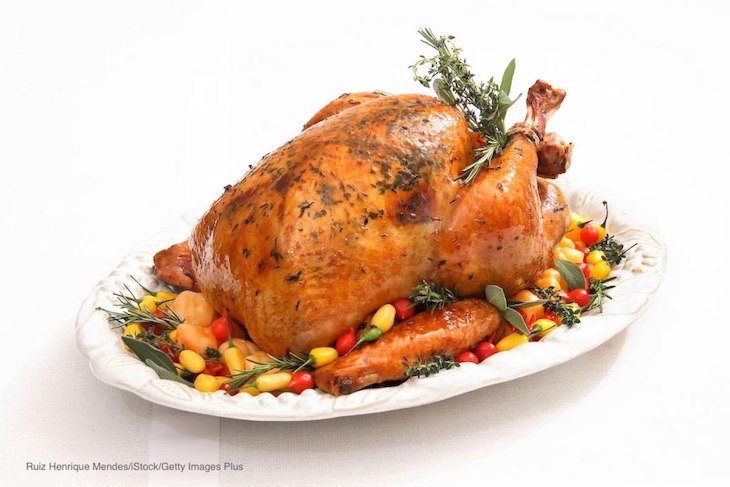 The Centers for Disease Control and Prevention (CDC) is offering holiday food safety tips. Cooking for a crowd is different from cooking for a family, and your guests may include people who are high risk groups for foodborne illness complications.
The Centers for Disease Control and Prevention (CDC) is offering holiday food safety tips. Cooking for a crowd is different from cooking for a family, and your guests may include people who are high risk groups for foodborne illness complications.
First, make sure you always cook food thoroughly. Print out cooking temperature charts for meat, poultry, fish, and eggs and post them in your pantry. And always use a reliable and accurate food thermometer to test foods before you serve them. Roasts, chops, steaks, and fresh ham should rest for 3 minutes after they are removed from the grill or oven so the temperature can rise.
Remember that the “danger zone” for food is between 40°F and 140°F, where bacteria grow rapidly. In fact, bacterial counts can double every 20 minutes at those temperatures. With this in mind, keep hot foods hot and cold foods cold. All perishable food should be frozen or refrigerated within 2 hours of cooking.
Always use pasteurized eggs if you are making a recipe that doesn’t cook them. Salmonella bacteria can be on the shell and actually inside the egg. Recipes such as eggnog, tiramisu, Caesar salad dressing, and hollandaise sauce should always be made with pasteurized eggs.
Do not eat raw dough or batter. Raw eggs, of course, are a potential hazard in these products, but as recent E. coli and Salmonella outbreaks prove, flour can also be contaminated with pathogens. Don’t let children play with flour-based dough. Some companies do offer edible cookie dough that uses heat treated flour and pasteurized eggs. Read the label carefully to make sure you can eat these products without cooking.
Avoid cross-contamination by keeping raw meat, chicken, turkey, seafood, and eggs separated from foods that are eaten uncooked. Juices can drip from those products onto other foods. So keep the meat products in containers or sealed plastic bags in the fridge. And use separate cutting boards for meats and other foods.
Thaw your turkey safely. Turkey should be thawed in the fridge, or in a sink or cold water, while changing the water every 30 minutes. Do not thaw any meat products on the countertop. Or cook your turkey frozen!
Wash your hands frequently while preparing food. Wash them before, during, and after food preparation, before eating, after handling pet food or pet treats or touching pets, after going to the bathroom, after changing diapers, after touching garbage, after caring for someone who is sick, and after blowing your nose.
Have a safe and wonderful holiday season with these holiday food safety tips.




